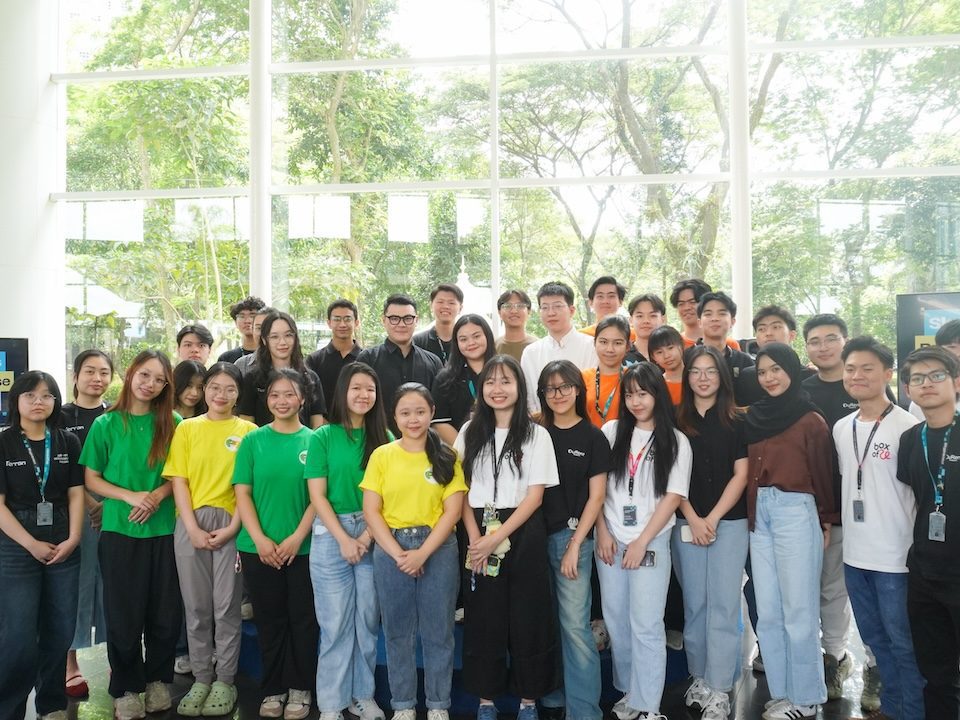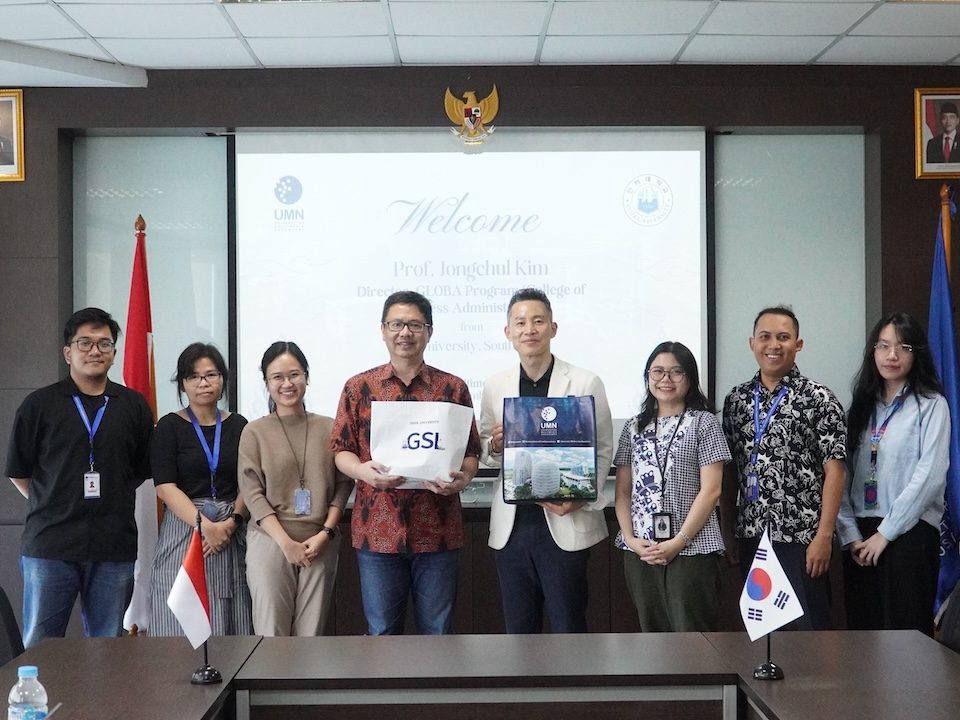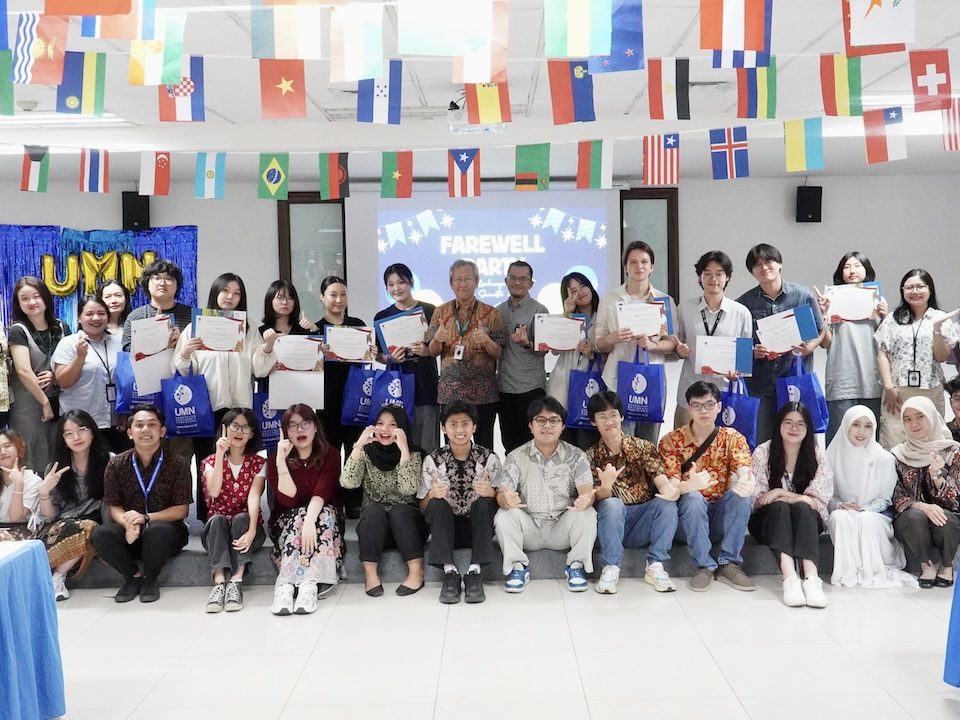
UMN’s Industry Visit Initiates Joint Recruitment Collaboration with Vivere Group
August 7, 2025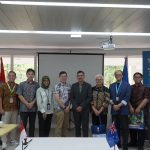
UMN Officially Conducts Research Collaboration with The University of Canberra and NEVCE
August 12, 2025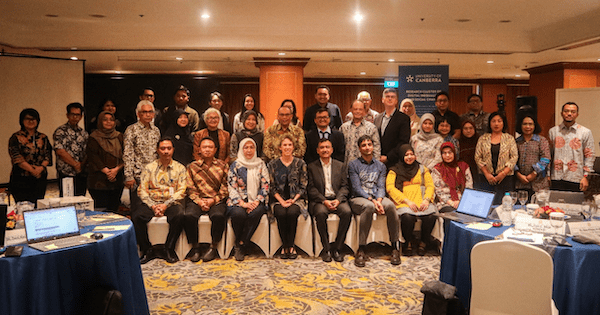
Foto bersama DIBI Project (Dok. DIBI-KONEKSI)
Government officials, researchers, industry leaders, and development partners from Indonesia and Australia gathered at Hotel Borobudur at Jakarta on August 5 for a daylong high-level workshop under the Decarbonisation Pathways for Indonesian Bus Infrastructure (DIBI) Project.
This collaborative initiative, funded by the Australian Department of Foreign Affairs and Trade (DFAT) through the KONEKSI Knowledge Platform and led by the Research Cluster of Digital Inequality (RCDISC) of the University of Canberra, involves some key stakeholders from both countries, including BRIN, Bappenas, UNS, Universitas Multimedia Nusantara, the Local Government of Surakarta, Icenergy Institute, and ICLEI from Indonesia; and National Electric Vehicle Centre of Excellence (NEVCE), ITP Renewables, EVENERGI, and DFAT from Australia.
Titled “Bridging the Gaps Towards Electric Buses & Sustainable Energy Use in Indonesia”, the hybrid event showcased cutting-edge research, policy strategies, and practical solutions to support the electrification of public transport through clean, renewable energy.
The workshop highlighted Surakarta’s pilot project on solar-powered bus depots, and explores the wider economic, social, and environmental benefits of electric bus adoption—from job creation and air quality improvement to gender-inclusive terminal design and digital upskilling of the workforce.
The daylong event included speeches from distinguished guests, including senior officials from the Coordinating Ministry for Economic Affairs, the Ministry of Transportation, the Ministry of Energy and Mineral Resources, the Australian Embassy, and the Mayor of Surakarta and key stakeholders of the project.
The opening session included a welcome and overview by Associate Professor Ahmed Imran, the Principal Investigator of the DIBI Project, followed by opening remarks from Mr Nik Acharya, Counsellor for Industry, Science and Resources (Department of ISR), Australian Embassy-Jakarta, Ms Jana C. Hertz, Head of KONEKSI (Knowledge Partnership Program- Australia-Indonesia), Mr Respati Achmad Ardianto SH MKn, Mayor of Surakarta City, Ms Andi Faizah Arsal, ST., MSi, from Land Transport, Ministry of Transportation (KemPerhub-RI).
The following session included presentation of preliminary findings from the research and panel discussion by Government and industry partners. Speakers were Professor Wahyudi Sutopo, Dean Faculty of Engineering, Universitas Sebelas Maret-Surakarta (UNS), Mr Toby Roxburgh, Executive Director, National Electric Vehicle Centre of Excellence (NEVCE, Australia), Dr Budi Yulianto (UNS), Dr Jose Zapata, ITP Renewables (Australia), Dr Tech Rahmi Andarini MEng Sc, Universitas Multimedia Nusantara (UMN), Dr. Renny Rochani, Faculty of Engineering, Universitas Sebelas Maret-Surakarta (UNS) Dr Rislima Sitompul, Senior Researcher, National Research and Innovation Agency (BRIN-RI) and Idris F Sulaiman PhD, Field Research and DIBI Project Manager and International Project Lead (NEVCE Australia) presented various aspects preliminary findings of the research project.
The industry and government panellists in the afternoon session shared various socio-economic and policy challenges from multiple perspectives, which led to a healthy discussion and debates from workshop participants.
The panellists include Gongom Sitanggang from ITDP, Selamet Daroyni from ICLEI, Dr. Dewa Ekayana from Indonesia’s Ministry of Finance, Arif Wibowo, from ICLEI and Gilarsi Wahju Setijono from VKTR. Dr Ahmed Imran, Mr Toby Roxburgh and Dr Idris Sulaiman moderated various panel discussions.
This event marks a bold step toward achieving Indonesia’s 2030 and 2045 zero-emission public transport targets, while laying the groundwork for greener, smarter, and more inclusive urban mobility.
by Farhan Shahriar and Muhammad Ichsan
+61412871252 (Aus) +62 821-6012-1500 (Ind)
✉️ [email protected]

